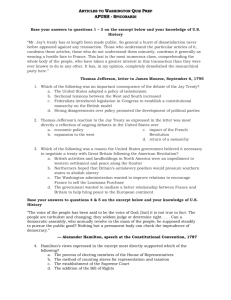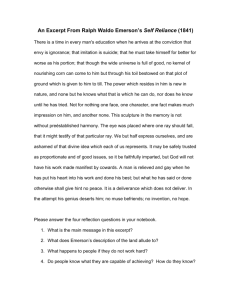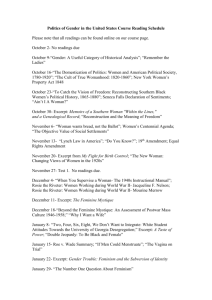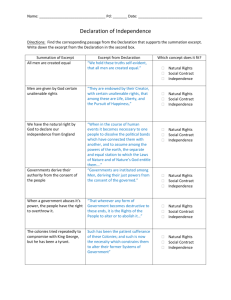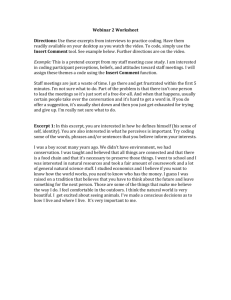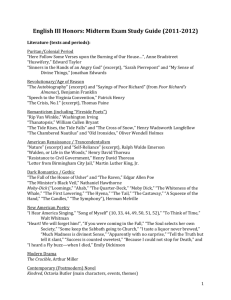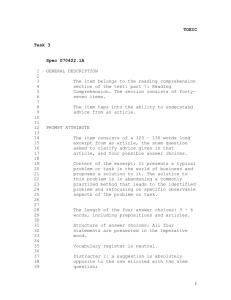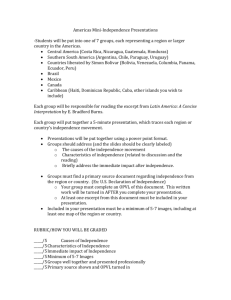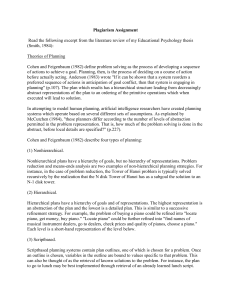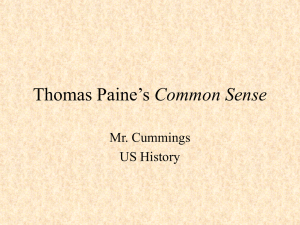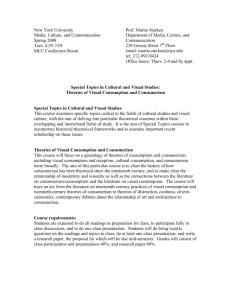U.S. Diplomacy With Native Americans
advertisement
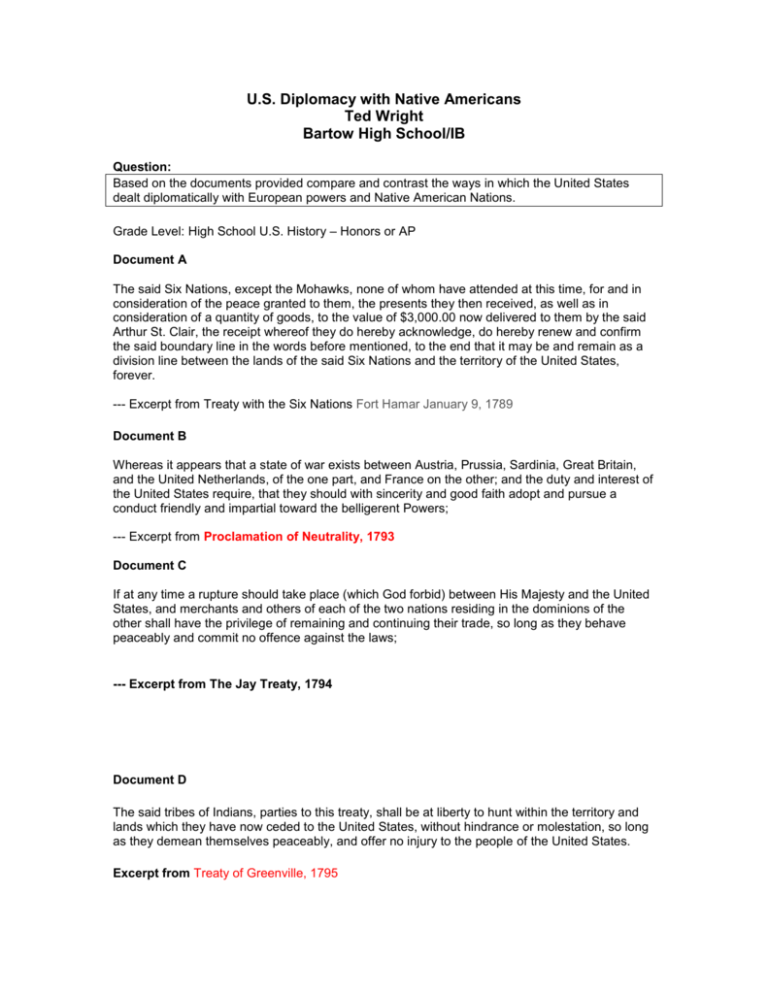
U.S. Diplomacy with Native Americans Ted Wright Bartow High School/IB Question: Based on the documents provided compare and contrast the ways in which the United States dealt diplomatically with European powers and Native American Nations. Grade Level: High School U.S. History – Honors or AP Document A The said Six Nations, except the Mohawks, none of whom have attended at this time, for and in consideration of the peace granted to them, the presents they then received, as well as in consideration of a quantity of goods, to the value of $3,000.00 now delivered to them by the said Arthur St. Clair, the receipt whereof they do hereby acknowledge, do hereby renew and confirm the said boundary line in the words before mentioned, to the end that it may be and remain as a division line between the lands of the said Six Nations and the territory of the United States, forever. --- Excerpt from Treaty with the Six Nations Fort Hamar January 9, 1789 Document B Whereas it appears that a state of war exists between Austria, Prussia, Sardinia, Great Britain, and the United Netherlands, of the one part, and France on the other; and the duty and interest of the United States require, that they should with sincerity and good faith adopt and pursue a conduct friendly and impartial toward the belligerent Powers; --- Excerpt from Proclamation of Neutrality, 1793 Document C If at any time a rupture should take place (which God forbid) between His Majesty and the United States, and merchants and others of each of the two nations residing in the dominions of the other shall have the privilege of remaining and continuing their trade, so long as they behave peaceably and commit no offence against the laws; --- Excerpt from The Jay Treaty, 1794 Document D The said tribes of Indians, parties to this treaty, shall be at liberty to hunt within the territory and lands which they have now ceded to the United States, without hindrance or molestation, so long as they demean themselves peaceably, and offer no injury to the people of the United States. Excerpt from Treaty of Greenville, 1795 Document E The direct object of his mission was expressed in his letter of credence to the French republic, being "to maintain that good understanding which from the commencement of the alliance had subsisted between the two nations, and to efface unfavorable impressions, banish suspicions, and restore that cordiality which was at once the evidence and pledge of a friendly union". And his instructions were to the same effect, "faithfully to represent the disposition of the government and people of the United States (their disposition being 1); to remove jealousies and obviate complaints by showing that they were groundless, 2) to restore that mutual confidence which had been so unfortunately and injuriously impaired, and 3) to explain the relative interests of both countries and the real sentiments of his own". --- Excerpt from John Adams Speech May 16, 1797 dealing with the XYZ affair Document F With the nations of Europe in general our friendship and intercourse are undisturbed, and from the Governments of the belligerent powers especially we continue to receive those friendly manifestations which are justly due to an honest neutrality and to such good offices consistent with that as we have opportunities of rendering. On this side of the Mississippi an important relinquishment of native title has been received from the Delawares. That tribe, desiring to extinguish in their people the spirit of hunting and to convert superfluous lands into the means of improving what they retain, has ceded to us all the country between the Wabash and Ohio south of and including the road from the rapids toward Vincennes, for which they are to receive annuities in animals and implements for agriculture and in other necessaries. --- Thomas Jefferson State of the Union Nov 8, 1804
